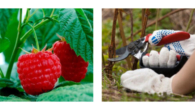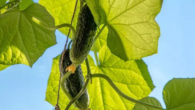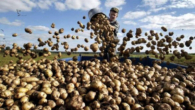
“Khokhol” and “katsap”: where did these words come from and what do they really mean?
0
The two words – “khohol” and “katsap” are perceived by Ukrainians as derogatory names for Ukrainians and Russians, respectively. This is how the “Dictionary of the Ukrainian Language” interprets them.
Where did the words “katsap” and “khohol” come from, philologist Olga Vasilyeva told glavcom.
“Khohol is a hairstyle. Cossacks wore khokhols, that is, herringbones. Khokhol is definitely not as offensive as “katsap”. “Katsap” is a Turkic word, it means “butcher”, “murderer”, “butcher”. This word was given to the Russians by the Kazan Tatars, who suffered from the raid of Ivan the Terrible’s oprichniks. Russians have nothing to be offended by the address “katsap”, because they are truly cruel. The entire history of Russia is murders, torture, wars of aggression and repressions”, says Olga Vasilyeva. Belarusians are called “bulbashi” – why be offended by this word, if the national dish of Belarusians is potatoes, the editor noted. “I am half Belarusian and I know how my mother ate as a child: potatoes were the main dish. For example, my mother liked borscht much less than deruny. So “khohol” and “katsap” are not insults, they are history,” Vasilyeva concluded.
In conversation, calling men by names such as Vitalik, Tolik, or Dima is a Russification. Ukrainian names do not have the suffix -ik, only Russians have it. Therefore, it is correct to say and write Tolik, Vitalik, Slavik, Vladik, Vadik, Kostyk, Rostyk, Edik, Danyk.
During our long stay in Ukraine as part of the Russian Empire/USSR, feminine endings for male names were imposed on us. For example, in Polesie, Vasyo – a man and Vasya – a woman were always distinguished, but now we hear “Vasya” everywhere for both women and men.









Leave a Reply